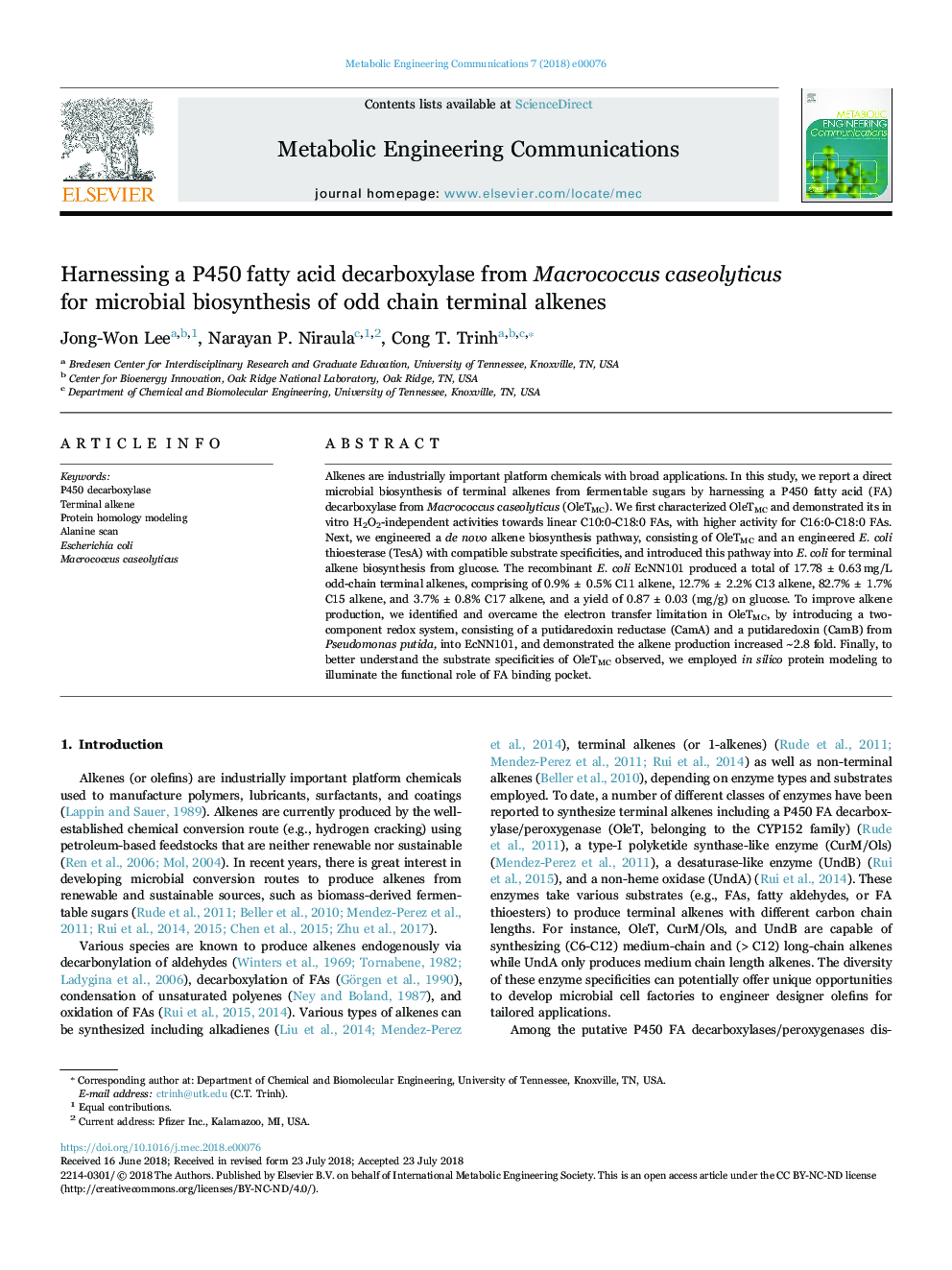| Article ID | Journal | Published Year | Pages | File Type |
|---|---|---|---|---|
| 6964986 | Metabolic Engineering Communications | 2018 | 9 Pages |
Abstract
Alkenes are industrially important platform chemicals with broad applications. In this study, we report a direct microbial biosynthesis of terminal alkenes from fermentable sugars by harnessing a P450 fatty acid (FA) decarboxylase from Macrococcus caseolyticus (OleTMC). We first characterized OleTMC and demonstrated its in vitro H2O2-independent activities towards linear C10:0-C18:0 FAs, with higher activity for C16:0-C18:0 FAs. Next, we engineered a de novo alkene biosynthesis pathway, consisting of OleTMC and an engineered E. coli thioesterase (TesA) with compatible substrate specificities, and introduced this pathway into E. coli for terminal alkene biosynthesis from glucose. The recombinant E. coli EcNN101 produced a total of 17.78â¯Â±â¯0.63â¯mg/L odd-chain terminal alkenes, comprising of 0.9%â¯Â±â¯0.5% C11 alkene, 12.7%â¯Â±â¯2.2% C13 alkene, 82.7%â¯Â±â¯1.7% C15 alkene, and 3.7%â¯Â±â¯0.8% C17 alkene, and a yield of 0.87â¯Â±â¯0.03 (mg/g) on glucose. To improve alkene production, we identified and overcame the electron transfer limitation in OleTMC, by introducing a two-component redox system, consisting of a putidaredoxin reductase (CamA) and a putidaredoxin (CamB) from Pseudomonas putida, into EcNN101, and demonstrated the alkene production increased ~2.8 fold. Finally, to better understand the substrate specificities of OleTMC observed, we employed in silico protein modeling to illuminate the functional role of FA binding pocket.
Related Topics
Physical Sciences and Engineering
Chemical Engineering
Bioengineering
Authors
Jong-Won Lee, Narayan P. Niraula, Cong T. Trinh,
